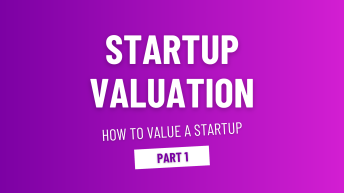we’re diving into how to prepare a data room and what VCs look for during their due diligence process. One common issue we see with startups seeking consultation with multiples in this area is that they’re incredibly skilled but struggle to communicate that expertise effectively. When they engage with investors, they often adopt a client-facing approach, which can lead to missed opportunities.
The goal here isn’t to provide a simple checklist; instead, we’ll focus on key insights that truly matter. However, if you do want a checklist, contact us, and we’ll send you a comprehensive list of the documents VCs typically request.
This guide is relevant for startups at all stages up to Series A. We’ll discuss five essential elements:
- What Do VCs Want from Us?
- How Do They Evaluate the Management Team?
- How Do They Assess the Product?
- How Do They Analyze the Business Model?
- How Do They Conduct Risk Analysis?
1. What Do VCs Want from Us?
While we know what we want from investors, it’s equally important to understand what they seek from us. During due diligence, VCs aim to ensure that your startup has the potential to generate returns sufficient to cover their entire fund.
For example, if a VC manages a $100 million fund, they expect you to generate returns in the range of $300 million to $500 million from your startup. This assumes that all other startups in their portfolio may fail, so you become critical to their overall success. If they own 20% of your company, their stake could be worth only 10% at exit time. Thus, to achieve a $300 million return, your startup needs to be valued at over $6 billion.
Understanding this helps clarify what VCs are looking for and highlights that any obstacles to reaching such valuations will make it more challenging to secure investment.
In reality, 50% of portfolio startups do not succeed, yielding 0X returns on investment. About 35% achieve 1X to 2X returns, 10% yield 2X to 3X, and only 5% exceed 3X. Consequently, VCs conduct due diligence with the assumption that you will be among that elite 5%. Your data room should demonstrate that you have what it takes to be one of them.
2. What Do VCs Look for in the Team?
The management team is typically the first element evaluated in your startup. If your team lacks strength, even a well-prepared data room won’t guarantee you investment. VCs assess the following eight factors:
- Industry Experience: Ideally, all co-founders should have at least five years of experience in the startup’s industry. Less than that may suggest a lack of domain expertise, increasing risk for the VCs. However, having too much experience can also be a drawback, as it might indicate rigidity and resistance to changing industry dynamics.
- General Experience: Beyond industry-specific expertise, VCs look for experience in managing large teams and budgets, which reduces the risk of poor decision-making in the startup’s financial management.
- Team Cohesion: A strong team should have complementary roles, ensuring that all critical areas of the startup are covered. This includes having members with technical skills, business acumen, and customer acquisition strategies.
- Effectiveness of Each Team Member: Each team member should be clearly valuable to the startup’s success. If you can’t articulate why someone is essential, it raises a red flag for the VCs.
- Vision: You must demonstrate a clear vision for growth and handling unexpected challenges. If you can’t outline your expansion strategy or exit plan, securing investment will be difficult.
- Team Stability: The ability to collaborate and avoid interpersonal conflicts is crucial. VCs will assess how long the team has worked together and their overall dynamics.
- Intelligence: This refers to the ability to make sound decisions and navigate challenges effectively. It includes being resourceful and knowing how to balance execution with strategic planning.
- Technical Skills: A team proficient in technical skills can build a superior product faster than competitors, which is a significant advantage.
3. What Do VCs Look for in the Product?
When evaluating your product, VCs focus on three key areas:
- Product-Market Fit: There’s often debate about what constitutes product-market fit, but it boils down to delivering a product that satisfies customer needs. Key indicators include ease of sales and consistent user engagement. Achieving this involves collaboration between technical, marketing, growth, and user feedback teams. Establish metrics to track your product-market fit; if you’re far from achieving it, securing investment may be challenging.
- Differentiation and Defensibility: VCs want to know what makes your product hard to replicate. This question often stumps startups. If you lack a solid answer, it indicates that you’re not intentionally building barriers to entry. Effective differentiation might involve partnerships, proprietary data, branding, or growth strategies. Key factors include:
- Branding: Strong branding can create customer loyalty, allowing you to charge a premium and stand out in the market.
- User Experience: A superior user experience can deter competitors, as customers may feel that switching to another product would be inconvenient or costly.
- Technology: Having unique or complex technology can serve as a significant barrier to entry for competitors.
- Network Effects: As more users join, the product becomes increasingly valuable, making it harder for competitors to catch up.
- Results: A proven track record of results can deter new entrants to the market.
- Value Proposition: Clearly articulate the value your product provides to users. Metrics such as customer retention, churn rates, loyalty, and lifetime value (LTV) will support your claims. A strong value proposition allows for pricing power; if customers remain loyal despite slight price increases, your product offers significant value.
4. How Do They Evaluate the Business Model?
Understanding your unit economics is paramount. You need to demonstrate healthy unit economics and ensure that your Total Addressable Market (TAM) is substantial enough to support growth. Additionally, a repeatable model with significant scalability opportunities is crucial, as VCs will be hesitant to invest without these factors in place.
5. How Do They Conduct Risk Analysis?
The lower the risk, the higher the value of your startup. Key risk areas include:
- Execution Risks: This includes challenges in fulfilling your vision due to competition, internal issues, or insufficient team expertise. You must outline how you plan to mitigate these risks.
- Economic and Social Risks: Be prepared to explain how you’ll navigate economic downturns or societal changes.
- Other Risks:
- Cash Flow Management Risks: Demonstrate your ability to manage investment funds effectively.
- Devaluation Risks: Explain how you plan to maintain your valuation in future funding rounds.
- Exit Risks: Clarify your strategy for ensuring that investors can liquidate their equity in the future.
By addressing these five critical areas, you’ll significantly enhance your data room and increase your chances of securing investment. Remember, VCs are not just looking at your startup; they’re assessing your potential to generate substantial returns
🚀 Ready to fuel your startup’s growth? Join multiples.cc today! Gain access to valuable tools, connect with investors, and get personalized support to help you succeed on your fundraising journey. Sign up now and take the next step toward securing the resources your startup needs to thrive!






Add comment